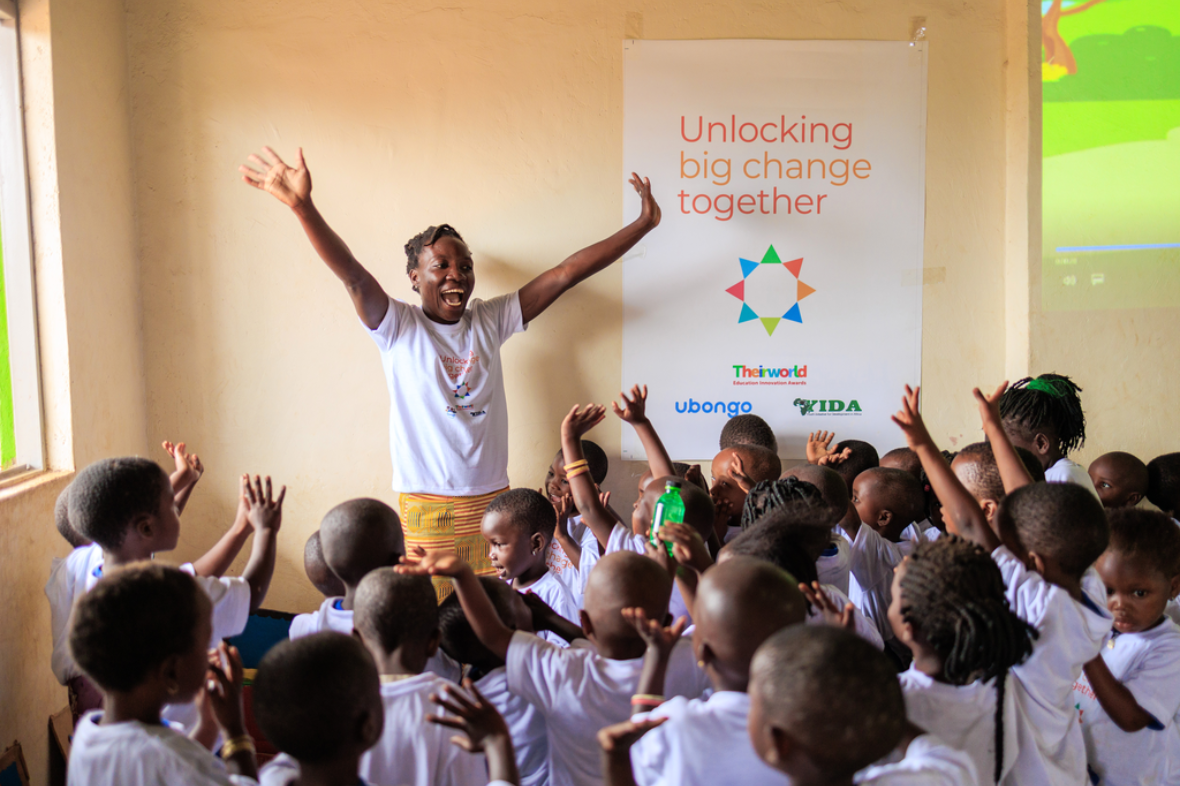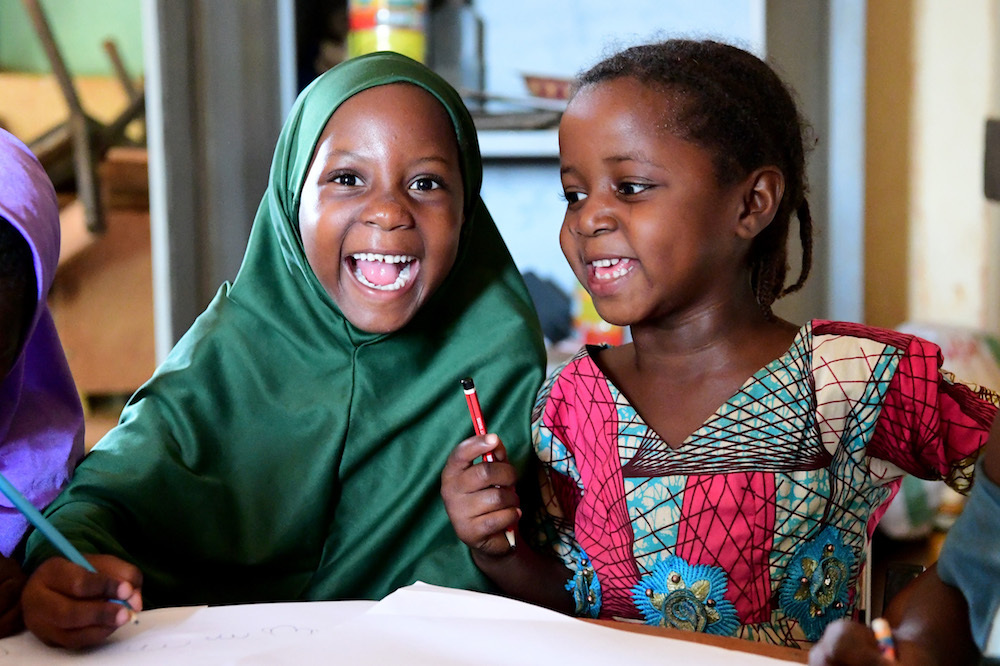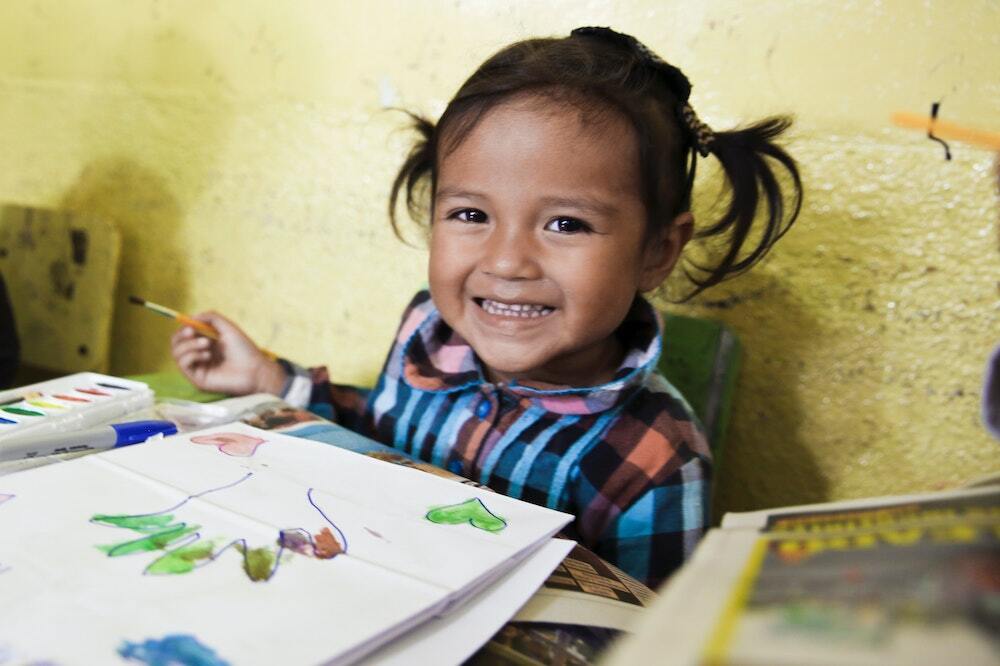
Theirworld report shows almost 50 million of the world’s poorest children miss out on pre-primary education

Early childhood development
Our analysis shows a chronic lack of funding from global leaders leaves young marginalised children at risk of falling even further behind.
Jump to
A major report by Theirworld reveals today that eight in 10 of the world’s poorest children – almost 50 million girls and boys – are missing out on vital pre-primary education because of a chronic lack of funding.
Spending on pre-primary schooling accounts for less than 1% of the international community’s aid to education – equivalent to just 34 cents per child, per year.
Theirworld has been campaigning for several years for 10% of education aid budgets to be spent on pre-primary education. Research shows that it’s crucial to a child’s development and that children who miss out fall behind even before they start primary school.
But of the world’s top 30 donors to education, eight do not spend a single cent on pre-primary education, according to analysis by Cambridge University academics for Theirworld.

One of the report’s authors, Professor Pauline Rose, said international donors need to “wake up” to the crisis. She said: “The first five years of a child’s life are among the most critical for their long-term development and the benefits of investing in pre-primary education are found to be the greatest for the most disadvantaged.”
Professor Rose, director of the Research for Equitable Access and Learning (REAL) Centre at the University of Cambridge, added: “It is nothing short of a tragedy that world leaders are failing to prioritise spending in this area. The international community must wake up and step up. Without urgent action, the risk is that some of the world’s poorest and most marginalised will continue to fall behind.”
The report – A Better Start? – reveals that spending on pre-primary education remains consistently low, with donors committing 37 times more to post-secondary education.
The countries that spend nothing on pre-primary education include the Netherlands, Qatar, Sweden and Saudi Arabia. The US, France, Denmark and Germany are among the 16 nations that commit less than 0.5% of their education aid budget to pre-primary education. The UK devotes 1.1%, behind Italy (1.8%), Belgium (1.9%), the Czech Republic and South Korea (2.2%).
Of all international donors, only UNICEF and the Global Partnership for Education – one of the major funds for education in lower-income countries – meet Theirworld’s recommended target of investing at least 10% education aid budgets in pre-primary education.
They are followed by Education Cannot Wait – the global fund for education in emergencies – (8.6%) and New Zealand (6.7%). The World Bank is next but some way behind (3.8%).
Theirworld has been campaigning since 2017 for international donors to give 10% of their education budgets to pre-primary children. Our research at the time showed not one donor was meeting that target, although UNICEF came on board soon after by committing to the 10% figure.
Watch a message from Audley Harrison, former boxer and Theirworld Advisory Board member.
Theirworld Chair Sarah Brown said: “Covid-19 has exacerbated the global education crisis and pushed the world’s poorest children further to the margins. We cannot let this continue.
“Over the next 12 months, world leaders have a series of opportunities at high-level meetings, where global stimulus plans will be developed, to show their commitment to the provision of quality early years education.”
Theirworld President Justin van Fleet said: “We know that funding pre-primary education is the most important and impactful thing world leaders can do to give children around the world the best start in life.

A young child attends a pre-school class (Nicole Leeper )
“Thanks to our campaigning, progress has been made – but it’s been very slow. If we have any hope of meeting the United Nations’ goal of inclusive and equitable education for all children by 2030, all world leaders must walk the walk and commit to investing 10% of their education aid budgets to the early years. Nothing less is good enough.”
The report analyses data submitted by international donors to the OECD’s Development Assistance Committee Creditor Reporting System. The most up-to-date figures are from 2019 so reflect investment before the Covid-19 pandemic.
The analysis shows that the proportion of aid spent on pre-primary education has been increasing – but from a very low base, rising from just 0.8% to 0.9% between 2015 and 2019.
It concludes that 6.4 million more children a year in low-income countries would benefit from pre-primary education if donors stepped up and met Theirworld’s recommended 10% target.
By the numbers
175 million
Children around the world missing out on pre-primary education.
10%
Of the international education budget should go to pre-primary education, Theirworld believes.
34 cents
Spent per child, per year by the international community on pre-primary education in low-income countries
$17
Return on investment for every dollar spent on the early years.
$144.7 million
Of aid spent on pre-primary education in 2019 – up from $99 million.
6 million
Girls and boys in the poorest countries who could receive pre-primary education if donors put 10% of their education aid budgets towards it.
More news

MyBestStart programme gives young girls the education they deserve
